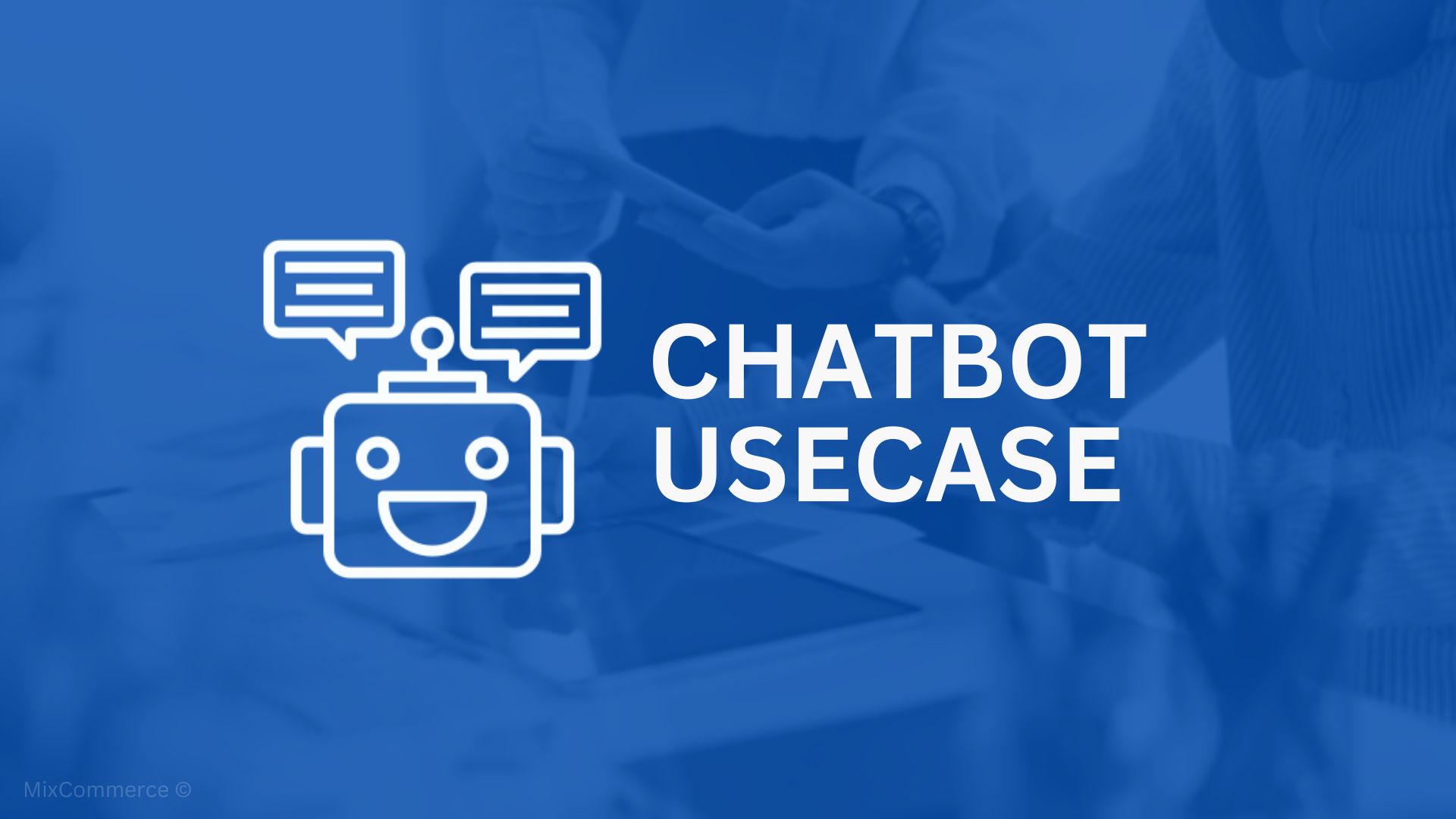As a business owner, you can use chatbots to communicate with your customers and provide them with assistance in a fast and automated way.
For example, you can use a chatbot on your website to answer frequently asked questions, help customers browse and purchase products, or schedule appointments.
Chatbots can be integrated into your business processes and can be customized to suit your specific needs. They are a cost-effective and efficient way to provide excellent customer service and support.
Where can you see the chatbot, how does it look?
A chatbot is a computer program(often shown on a webpage) designed to reply conversation of customers.
It often looks like a chat widget but with predefined options.

Here are a list of use case in specific industries where chatbot can be applied
- Marketing and advertising: Chatbots can assist with lead generation, personalize messaging and offers, and provide real-time assistance to potential customers.
- Social media: Chatbots can assist with moderating comments and providing customer service on social media platforms.
- Customer service and support: Chatbots can provide fast, automated assistance to customers.
- Lead generation and qualification: Chatbots can help businesses collect information from potential leads and qualify them for sales follow-up.
- E-commerce: Chatbots can help customers browse and purchase products, track orders, and get recommendations.
- Appointment scheduling: Chatbots can help businesses schedule appointments with clients and customers.
- News and content delivery: Chatbots can deliver personalized news and content to users.
- Event registration and ticketing: Chatbots can handle event registration and ticketing tasks.
- Surveys and feedback collection: Chatbots can help businesses gather customer feedback and conduct surveys.
- HR and employee assistance: Chatbots can assist with HR tasks such as answering employee questions and processing time-off requests.
- Healthcare: Chatbots can assist with appointment scheduling, medication reminders, and symptom checking.
- Energy and utilities: Chatbots can assist with account management, billing inquiries, and provide information about conservation and efficiency programs.
- Banking and financial services: Chatbots can assist with account management, balance inquiries, and fraud detection.
- Travel and hospitality: Chatbots can assist with booking and reservation management, as well as provide recommendations and local information to travelers.
- Gaming: Chatbots can provide assistance and support to players, as well as offer personalized recommendations and content.
- Real estate: Chatbots can assist with property search and provide information about listings.
- Nonprofits: Chatbots can assist with donation management and provide information about volunteer opportunities.
- Education and training: Chatbots can provide educational content and assist with online training.
- Government and civic organizations: Chatbots can assist with issuing licenses, permits, and other services, as well as provide information about local resources and services.
- Telecommunications: Chatbots can assist with account management, billing inquiries, and technical support.
- Legal services: Chatbots can provide information about legal procedures and assist with document preparation.
- Transportation and logistics: Chatbots can assist with tracking shipments, booking transportation, and providing real-time updates.
- Retail: Chatbots can assist with product recommendations, size and availability inquiries, and provide personalized shopping experiences.
- Restaurant and food service: Chatbots can assist with menu recommendations, reservations, and takeout orders.
- Manufacturing and logistics: Chatbots can assist with inventory management, tracking shipments, and providing real-time updates on production processes.
FAQ: Frequently Asked Questions

Why do businesses implement chatbot?
Businesses implement chatbots to answer customer queries instantly. Unlike human customer support, a chatbot runs all the time and answers all the defines questions. It is also used to cut the cost on live agents and increase profit.
Does a chatbot answer only used for query?
A chatbot goes way beyond answering questions. A chatbot today can show products from eCommerce, inform the customer if the product is back in stock, and reply to complex queries generated by customers including. Some chatbots also have payment processing in it.
How a business can use chatbot?
As a business, you can use chatbots to communicate with your customers and provide them with assistance and support instantly without spending too much time and resources on keeping too many support and sales team.
How to use chatbot for a website?
You can use a chatbot on your website to answer frequently asked questions, customer queries, knowledge base, help customers browse and purchase products or schedule appointments.
Can we customize chatbot for a business?
Absolutely. Chatbots can be integrated into your business processes and can be customized to suit your specific needs. They are a cost-effective and efficient way to provide excellent customer service and support.
Conversational AI is a technology that understands things people type in chat and responds. However, in case of chatbot, it can or cannot be powered by conversational AI. A simple chatbot can be built on normal control flow without AI.
Infographics



